Chernobyl Remembered
The Accident
The ANS Nuclear Cafe is a blog owned and edited by the American Nuclear Society. Information contained on the ANS Nuclear Cafe has been provided by numerous sources. Therefore, the American Nuclear Society assumes no responsibility or liability for the accuracy of information contained herein. DISCLAIMER: The views expressed in posted articles do not necessarily reflect the views of the American Nuclear Society. The views expressed here are those of the individual authors. ANS takes no ownership of their views. The American Nuclear Society assumes no responsibility or liability for any use or operation of any methods, products, instructions, or ideas contained on this site.

A message from NV5, Inc.
Seconds Matter: Rethinking Nuclear Facility Security for the Modern Threat Landscape
The Accident
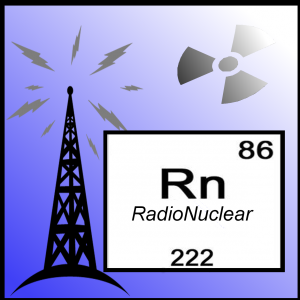 On Episode 19 of RadioNuclear, we discuss the success the Chinese have had with the Hualong One reactor, the decommissioning of SEFOR, and the sale of Indian Point units to Holtec and what it means for the industry. We also talk about a recent Bloomberg article casting nuclear as being susceptible to climate change.
On Episode 19 of RadioNuclear, we discuss the success the Chinese have had with the Hualong One reactor, the decommissioning of SEFOR, and the sale of Indian Point units to Holtec and what it means for the industry. We also talk about a recent Bloomberg article casting nuclear as being susceptible to climate change.
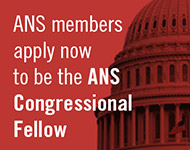 Saving our planet. That's the principal reason I applied to become the 2018 ANS Glenn T. Seaborg Nuclear Science and Engineering Policy Congressional Fellow. After I applied, interviewed and was selected, I was invited to work in the office of Rep. Marcy Kaptur (D., Ohio's 9th District), who is now in her 19th term in the U.S. House of Representatives. Kaptur was honored late last year for becoming the longest-serving woman in the House. This was a fortuitous pairing, as Congresswoman Kaptur is a longtime advocate for American energy independence and now chairs the Appropriation Committee's Energy and Water Development Subcommittee. There was hardly an appointment that had more potential for me to learn the role of policy in our energy future.
Saving our planet. That's the principal reason I applied to become the 2018 ANS Glenn T. Seaborg Nuclear Science and Engineering Policy Congressional Fellow. After I applied, interviewed and was selected, I was invited to work in the office of Rep. Marcy Kaptur (D., Ohio's 9th District), who is now in her 19th term in the U.S. House of Representatives. Kaptur was honored late last year for becoming the longest-serving woman in the House. This was a fortuitous pairing, as Congresswoman Kaptur is a longtime advocate for American energy independence and now chairs the Appropriation Committee's Energy and Water Development Subcommittee. There was hardly an appointment that had more potential for me to learn the role of policy in our energy future.
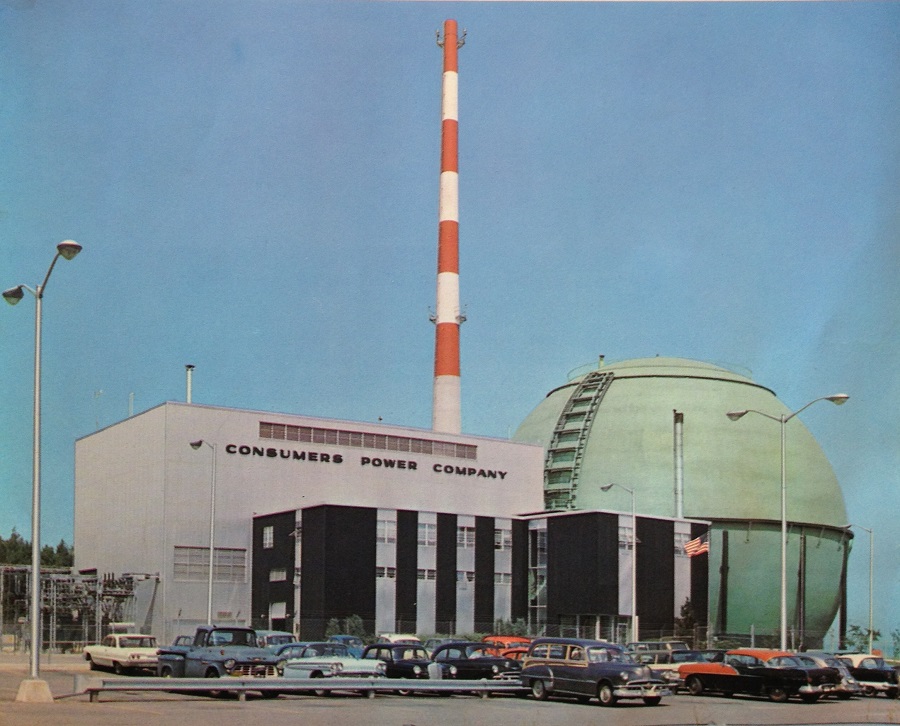
Nuclear energy is perhaps mankind's ultimate technical achievement. (Big Rock Point photo from Consumers Power brochure in my collection.)
The upcoming American Nuclear Society Annual Meeting in June has, as its theme, "The Value of Nuclear." I am aware that this phrase covers many different things felt by many different people; I'd like to tell you what it means to me.
In April, Virginia Commonwealth University (VCU) hosted the annual ANS Student Conference in Richmond, VA. At its core, the student conference is exactly what it sounds like, a conference for students. The conference has everything that one would find at the winter and annual meetings, including technical sessions, panels, poster sessions, and industry partners. This conference, however, is organized and attended primarily by students and is hosted at the heart of a college campus.
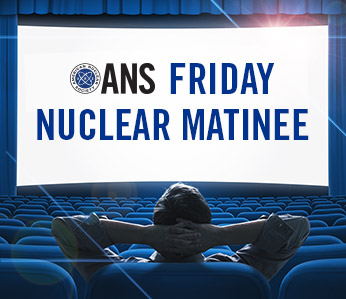
This week we have two wonderful, historic but short features that focus in on Idaho National Laboratory and some of the remarkable achievements that this storied site has accomplished.
 RadioNuclear Episode 18 is now up! We talk about new legislation in Ohio that may help save the ailing nuclear power plants in their state, discuss the new bi-partisan federal legislation aimed at helping America regain its leadership with advanced nuclear, learn about some interesting new nuclear power plant construction around the world, and talk to three members of the American Nuclear Society's professional engineering committee to discuss the merits of obtaining the PE.
RadioNuclear Episode 18 is now up! We talk about new legislation in Ohio that may help save the ailing nuclear power plants in their state, discuss the new bi-partisan federal legislation aimed at helping America regain its leadership with advanced nuclear, learn about some interesting new nuclear power plant construction around the world, and talk to three members of the American Nuclear Society's professional engineering committee to discuss the merits of obtaining the PE.
Looking at the news every day these days, remembering of course that algorithms collate content for me quite often on various platforms, it seems that there's some considerable momentum growing for nuclear energy here in the United States. What's troubling is that while there is a growing sense of urgency, I also see a continued, repeated focus in far too many articles on 'probably in ten years' technologies. If there's really an urgency, it seems probable that looking to the next hill is ridiculous while we're getting ready to die on this one. If we really do need urgency, what do we do? Here are a few suggestions - feel free to add some constructive or additional ideas in the comments.
Sometimes it feels like we're fighting an uphill battle for nuclear energy - and perhaps we are.
Thank you for joining us for RadioNuclear Episode 17! In this podcast, we discuss a fascinating new poll out of Japan where a survey shows that residents are warming up to nuclear again. We also discuss the new loan guarantees for the Vogtle Construction project and talk a bit about the historical decommissioning of the Sturgis floating nuclear reactor.

Since we published the report on the completion of the dismantling of the STURGIS yesterday, this video seems appropriate. Today, we have a 23 minute film produced by Martin-Marietta (the nuclear contractor for the project) on the completion of the STURGIS project. This is one of the most fascinating historic nuclear films you'll see - so don't miss it!
Several news items have come in this week which have one common theme - nuclear energy operation on the water.
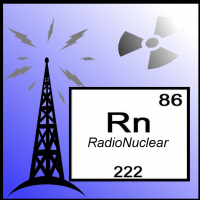 Thank you for joining us on Episode 16 of RadioNuclear! In this episode, we discuss why most young people displaced by Fukushima do not want to return to the region. We also discuss why Lithuania wants Belarus to convert its under construction nuclear plants to natural gas, and how Finland is one step closer to bringing Olkiluoto 3 online. Lastly, we discuss how recent cold weather in the state of Washington showcases nuclear power's exceptional performance during extreme weather events.
Thank you for joining us on Episode 16 of RadioNuclear! In this episode, we discuss why most young people displaced by Fukushima do not want to return to the region. We also discuss why Lithuania wants Belarus to convert its under construction nuclear plants to natural gas, and how Finland is one step closer to bringing Olkiluoto 3 online. Lastly, we discuss how recent cold weather in the state of Washington showcases nuclear power's exceptional performance during extreme weather events.
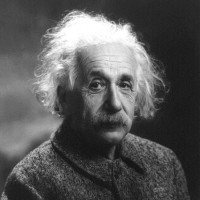 Einstein is most well-known for his theory of relativity (e=mc²), but did you know these lesser-known facts about everyone's favorite crazy-haired physicist?
Einstein is most well-known for his theory of relativity (e=mc²), but did you know these lesser-known facts about everyone's favorite crazy-haired physicist?
The seismic event was huge and was felt all over the world. With a moment magnitude of over 9.0, the earthquake and was the fourth largest ever in the more than 100 years of recorded history. Huge land masses shifted as much as 2.4 meters, and the rotation of the earth was changed so that days were suddenly just a little (but measurable) bit shorter. It had sped up the world.
Although we may not think of art at the same time as we think of nuclear facilities, art has nevertheless played an important role in their development. The "artist's concept," or an illustration (or model, or doctored photo of a model) was, and is, a very useful tool to display to anyone what a planned facility will look like - no small thing to a community asked to host one, or a utility paying to build one. There have been many genres of concept illustration or art produced for nuclear plants just as there have been for any other kind of thing - so let's take a look at some from my collection. Descriptions are in the captions; click photos to enlarge.
During March's Women's History Month, I honor Leona Woods by telling #herstory.
Welcome back for another great episode of RadioNuclear! Today, I am happy to announce that RadioNuclear is now sponsored by the American Nuclear Society, in the hopes to bring you even more of the podcast you know and love! In this episode, we cover a range of news topics, including how anti-nuclear policy and perception are hurting the nuclear industry in the U.S. and South Korea. We also cover INL's 70th year of operation, and talk about a great advocacy toolkit from the Department of Energy, the Ultimate Fast Facts Guide to Nuclear Energy.
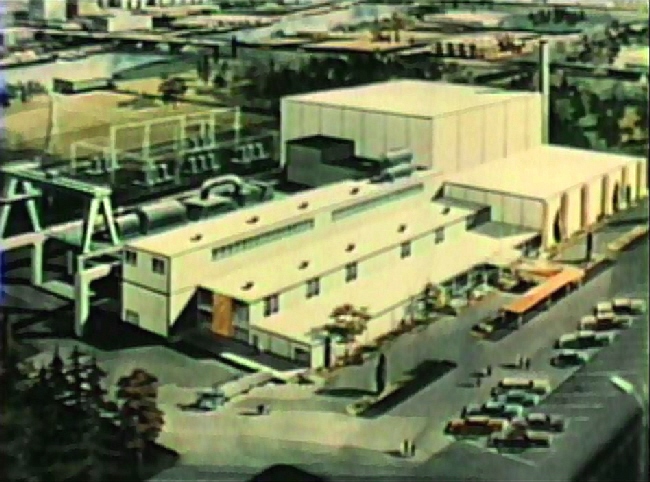
Early 1960's artist's concept for a commercial organic cooled nuclear power plant - right near a city. This isn't far from what actually happened as we'll see below. Concept art published by Atomics International.
The present re-examination of reactor principles tried in the past but for one or another reason sidelined has skipped a very significant principle: Organic coolant. This was an early idea which received a great deal of research and press during the great buildup of nuclear technology; today, it's largely been forgotten. Let's take another look!